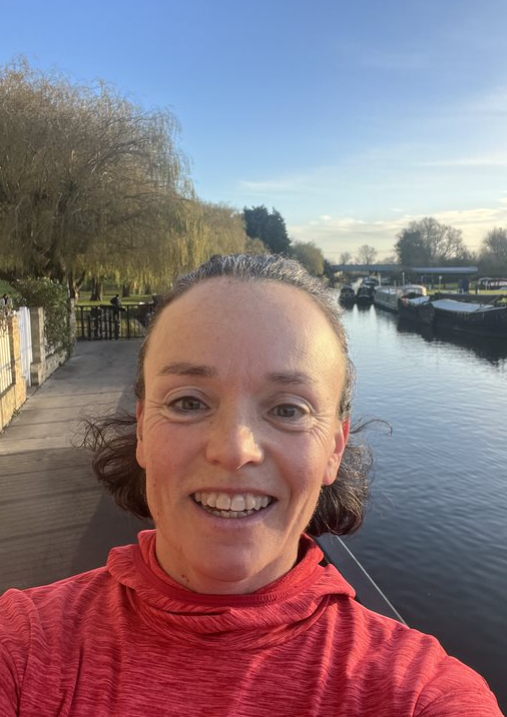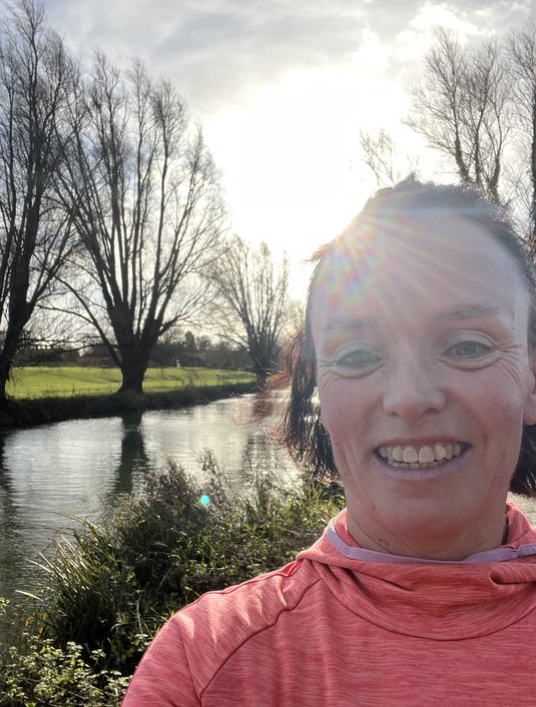I’m So Stressed – Blog Post #21
Published on Monday 17th March 2025 by guest contributor Dr Claire Gillvray

So what is stress? Is it all bad? Stress is a natural bodily response to internal or external pressure and can give us a combination of physical and psychological symptoms and signs. We know that having no stress reaction in our body is a bad thing – for example, we need our body to produce cortisol and adrenaline to help us function on a daily basis. We have a stress reaction every morning as we wake, when our cortisol levels rise in order to kick us into action. We have a stress reaction when we exercise, as adrenaline and cortisol raise our heart rate to give us access to energy to fuel the movement. We all need a little stress in our lives. It’s the thing that helps us build resilience. By having some stress in our lives we build up the ability to deal with other stress. It creates a drive. An energy. It switches on our noradrenaline, cortisol, sex hormones, thyroid function. Our engine. But like every engine it needs to be switched on and off for it to function.
When our ‘engine’ or stress response is switched on a lot, such as when we are living with chronic illness, in poor housing, caring for someone, being bullied at work, or have had a traumatic life event, a constant stress response can leave us feeling overwhelmed. It feels like we are constantly running a marathon or running away from an invisible tiger. Exhausting. Depressing. Debilitating. It comes out in every system in our bodies. Our gut will become bloated and swollen. Our skin is inflamed.
We can’t sleep. We feel on edge. We get headaches. Everyone has a point when their system cannot take anymore. Yes, there are some of us who are more prone to the effects of stressful life events. If our starting point is as a “worrier”, if we have a family history of mental ill health, if we have experienced childhood trauma, then our ‘stress bucket’ will already be half full. So it will take less of what life throws at us to make that bucket overflow – but everyone’s stress bucket will overflow at some point.
So how do we manage stress or create balance in our system when things are getting on top of us?
1. Stage one is recognising stress. When we are in the midst of stress we don’t always see it. Can we stop and reflect on how we feel and experience stress in our minds and bodies? This is individual to each of us. Some people feel it more emotionally or psychologically and others physically. What do you find when you scan through your body and mind?
2. Then we need to reflect on what we tend to do when we are stressed. Some of us will have positive responses. We recognise the stress and we have ways of coping that help. But if we don’t recognise the stress then we often fall into not so helpful behaviours. Maybe that means staying up late, drinking alcohol, scrolling on social media or comfort eating. Again everyone has different coping strategies learnt over years – some helpful, some not so much. What are yours?
3. If we think of our stress bucket as overflowing or our Jenga tower toppling, how do we steady it? One of the first things we need to do is to try and stop or change what is causing the stress. Put down the things that we don’t need to be doing. Say no to the extra tasks and asks of us without feeling guilty. Create a boundary or limit the time we are in a stressful environment. Try to find a big dose of kindness and compassion for ourselves in this moment as we recognise that ‘doing it all’ is not always possible.

4. The other way we can reduce that overwhelm especially when we can’t reduce the stress we are under, is to create our self-care list. The things that we can do that make us feel better. That list will look different for each of us and may change over time – even day by day. We may feel we need to do something physical like going for a run or hitting the gym. We may feel we need something soothing or mindful like having a relaxing bath, taking a nap or being mindful using meditation or yoga. Taking a moment to create your self-care list can be helpful because in stressful moments it is hard to remember what helps.
5. A good way to think about what reduces negative stress reactions can be to think about the pillars of lifestyle medicine. These pillars are defined by the British Society of Lifestyle Medicine and have lots of scientific research behind them so we know they work. So how do we manage stress or create balance in our system when things are getting on top of us?
💜 Sleep: Getting good quality sleep reduces feelings of stress and anxiety. We know that the reverse is also true and that often we don’t sleep well when stressed but maybe we can make one small change to try and improve our sleep. Going to bed at the same time and getting up at the same time. Stepping into daylight early in the day. Getting out of bed rather than lying awake worrying. Switching off and winding down before bed. Being active during the day.
💙Movement: Both being less sedentary and also being active can be helpful in terms of improving our mental health and this may be how you choose to manage your stress levels. Remember to be kind and not over-tax your body when you are stressed. And also remember that rest and recovery form part of this picture too. Being active will support both your physical and mental health. Find something you enjoy and do it regularly. Do it with someone you like spending time with or have a coach or trainer guide you. These are the things known to help with motivation.
💚 Nutrition: We know that feelings of stress can often drive us to make poor choices with regards what we eat and the nutrition we need. We reach for quick fixes and easy options which oftensend us into a roller coaster of sugar spikes and crashes. Eating a Mediterranean diet high in whole plant based foods, low in saturated fats, low in simple carbohydrates and high in good quality protein and omega 3s can improve brain health and make our moods more stable.
🧡 Connection: Being socially isolated is associated with poor physical and mental health. Unfortunately, being stressed and exhausted can make us isolate ourselves and avoid social interaction, which means we aren’t getting the support and connection we need to take those stress levels down. Connection doesn’t have to be social though – we can feel connected by being in nature or around animals, when we practice mindfulness or by having a purpose or something that sparks joy or wonder.
❤️ Minimising harmful substances: This typically means reducing alcohol, drugs and cigarettes that can increase anxiety and impact on our mental health but there are other things that we do that can increase our stress levels. Maybe that means drinking a lot of caffeine, eating foods high in sugar or saturated fats, gambling, scrolling on social media…there are many harmful things we do that don’t help us when we are struggling. Recognising these habits can help us minimise their impact and take steps to find healthier strategies. Again, this needs to be done with self-compassion and kindness, as guilt and shame are in themselves stressors.
💛 Stress is inevitable and the aim is not to be stress-free, but to balance stress and move through it to rest and recovery. Like everything to do with our mental health it is worth asking for help if you find this all too difficult – if you need medical advice, contact your GP for an appointment or there are lots of mental health support lines (over the phone, by text or via webchat) that can help people find the support they need to manage stress when it gets too much.

